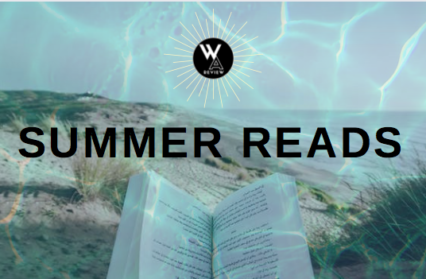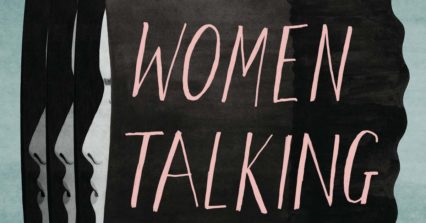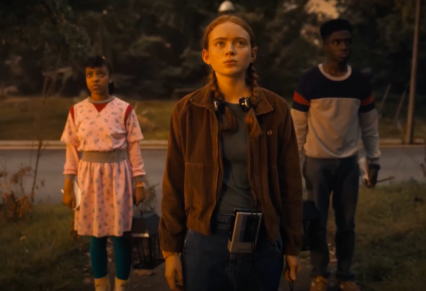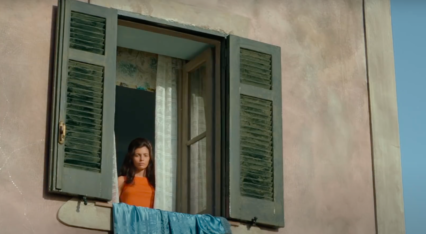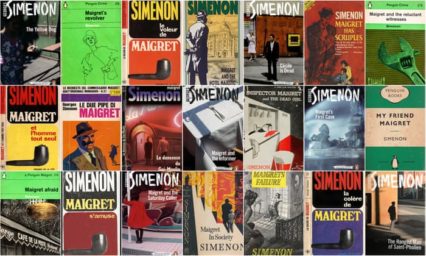As the UK emerges from some of the hottest days on record, Wales Arts Review contributors and editors share a few of their favourite (and current) summers reads – with music, film and TV thrown in for good measure. From novels you should have read years ago to recent releases, dive in for summer recommendations of great breadth and taste.
The arrival of new Quantitative Analysis and Comparison software has turned the publishing world on its head. Once the hallmark of all genuine authors, originality has proven itself to be a rare beast. The new software has shown 95% of all publishing to be plagiaristic. The world of books collapses. The race to find genuine originality is on. Out front emerges, of all things, poetry which begins to sell in quantities previously thought impossible. And a new human type appears – the rich poet.
One such is Solomon Wiese. This man turns up to massively well attended gigs and simply speaks. No script. No notes. No prep. New poetry every night. He is a sensation. Backed by his one-time small press he shifts millions of copies of the printed version. The world is amazingly new. Until, that is, someone discovers that even Weise’s originality is not what it seems. His work is found to have been 98% derivative. The poetry world collapses.
Author Sam Riviere, himself a Faber poet and an operator of what he terms a ‘micropublisher’, has come up with a 2022 masterpiece (although in our new egalitarian gender-obsessed society such works can’t continue to be known as such for much longer). Written as a single 200-page paragraph with 13 characters and endless plot twists this book might sound difficult but is instead a witty and can’t-put-downable triumph.
During covid weirdness I haven’t kept up with new work but have haphazardly enjoyed BISHRYAs (Books I Should Have Read Years Ago). Still, some new writing seeped through. Poetry: Paul Henry’s As if to Sing impresses with its spareness and formal subtlety. Publication of Peter Finch’s monumental Collected Poems (ed. Andrew Taylor) is a major event. Among newer voices, Laura Wainwright’s booklet Air and Armour is taut, assured and intense.
The most beautiful book is the re-issue of B.L. Coombes’s Miner’s Day with Isabel Alexander’s illustrations, immaculately edited by Peter Wakelin. In fiction I have a lot to catch up with but will mention Tony Curtis’s innovative docu-fiction, Darkness in the City of Light and Euron Griffith’s first novel in English, Miriam, Daniel and Me.
Of those BISHRYAs, I’ll pluck out Mann’s Buddenbrooks (J.E. Woods’ translation), Dickens’s Dombey and Son, and Gwenallt’s unfinished fiction-memoir, Ffwrneisiau (‘Furnaces’). Wonderful books from different languages, eras and social classes which triangulate on the psychic and physical deformations wrought by industrial capitalism. As a corrective to Dickens’s sentimentality try Claire Tomalin’s biography of his mistress, Nelly Ternan, The Invisible Woman.
Pennar Davies was a Nonconformist minister, academic and nationalist. Read his retro-futuristic 1961 novel Anadl o’r Uchelder (‘A Breath from the Heights’), a strange, uneven, provoking examination of the nexus between political power, evangelism and sexuality with homo-erotic and sexual sadistic overtones, and have your preconceptions challenged. And I’ve just reread and never tire of plugging Dorothy Edwards’s modernist masterpiece of a short story collection, Rhapsody (1927). Just brilliant.
Christopher Meredith’s most recent books are Still (poems) and Please (novel).
My summer recommendation is Miriam Toews’ novel Women Talking. Inspired by real events in a remote Mennonite colony in Bolivia, Toews tells the story of a secret conversation among a group of women who struggle to reconcile devastating violence in their community with their faith.Simple in form, astonishing in scope, this book is a compelling and complicated exploration of moral responsibility, freedom, and the difficulties of choosing what – and who – to protect. It also sings with Toews’ trademark gritty humour and her deep understanding of women’s courage and love. A book worth reading several times. Published in 2018, Toews’ novel has also now been adapted as a feature film to be released later this year, written and directed by Sarah Polley, starring Jessie Buckley and Ben Whishaw.
The soundtrack of my summer so far has been the Norwegian violinist Bjarte Eike, and his album The Image of Melancholy (2014), which made for good hiking music. Eike takes songs and melodies from the Baroque canon and gives them a pared back, modern reworking, breathing new life into them. His version of Neil Gow’s Lament (1805) sounds as if it could have been written yesterday. Recent reads have included Bruce Chatwin’s In Patagonia and Alan Bennett’s House Arrest: Pandemic diaries, and I’m now dividing my time between Bernardine Evaristo’s brilliantly salacious The Emperor’s Babe and Lola Olufemi’s thought-provoking Experiments in Imagining Otherwise.
Birdsong: in a time of silence by Swansea-based author Steven Lovatt (Penguin) retraces the musings and wanderings of its author, a keen bird watcher confined to his locality during the 2020 lockdown. This delightful book has a contemplative quality, calling us to slow down and take a focused look at the spaces around us. Beautifully written, it blends lyricism, science and folklore to convey the author’s passion for our winged friends, resulting in a fascinating journey, illustrated by Katie Marland’s delicate drawings. The book had me pause and stop in my own neighbourhood, stretching an ear to catch the sound of a jackdaw, a wren or a starling, birds I would have been unable to spot, let alone name before.
Sophie Buchaillard is the author of This Is Not Who We Are (Seren books). Follow Sophie on Twitter and Instagram – for her website, click here.
Best known for his horror novella The Great God Pan and his semi-autobiographical novel The Hill of Dreams, a case can be made that the most engaging writing by Wales’s Arthur Machen is to be found in some of his other works. My main ‘read’ this summer will be Machen’s The Chronicle of Clemendy, a group of Monmouthshire-set stories emulating Boccaccio’s The Decameron and Chaucer’s Canterbury Tales. The tellers of Machen’s tales are on a pilgrimage of sorts to his home shire. Errant knights, trysts, bumblebees, wry humour and foaming tankards abound. A rather lovely new limited edition – with illustrations and notes – has been issued by Newport-based press Three Impostors.
Crime fiction of a certain kind – the ‘hardboiled’, I suppose – seems to me to fit with the summer months: preferably in paperbacks that can be slipped into a pocket or daysack. Although now very much”of their time” (and with some of the attitudes that went with it), it’s difficult to deny Ross Macdonald’s observation about Raymond Chandler’s Philip Marlowe novels that “[they are written] like a slumming angel and invested the sun-blinded streets of Los Angeles with a romantic presence”.
On the subject of portability, I seem to have been buying a few of the old Observer’s Series of books lately – Trees, Weather, etc. Their precision and detail can bring enlightenment to trips into the Great Outdoors.
Short stories are also a must for the summer months – collections from classic exponents such as Hemingway, Cheever, Maupassant and du Maurier. This is a form that can yield gems to the searcher. I was recently entranced by E. Nesbit’s The Violet Car. For contemporary fare of the creepy kind, look out the latest Dark Lane anthology (where I have a story this summer) and Wales’s own The Ghastling (which has summer and autumn editions).
You can find Matthew G. Rees’ collection The Snow Leopard of Moscow & Other Stories here.
If you only have time to squeeze in one Netflix show between beach trips and holidays this summer, make it the latest – and most exhilarating – season of Stranger Things. Packed full of all the references to 80s nostalgia and nerd culture we’ve come to expect, season 4 raises the stakes higher than ever and takes a distinctly dark turn. Picture the teenage escapades of The Breakfast Club and the unabashed horror of Nightmare on Elm Street. Stranger Things 4 falls somewhere in the middle – an amalgamation of all the best tropes and genres the 80s has to offer.
This season, the show’s lovable gang of misfits face off against a mind-invading villain from the Upside Down with a penchant for killing local teenagers; but don’t be fooled, there’s more going on in Hawkins than meets the eye (isn’t there always?). Standout performances from show veterans Sadie Sink (Max) and Caleb McLaughlin (Lucas) elevate Stranger Things beyond mere outlandish escapism, but it’s newcomer Joseph Quinn that really steals the show with his portrayal of the endlessly charismatic metalhead Eddie. Psychic battles, epic guitar solos, and D&D references abound!
You can follow Isobel Roach on Twitter here.
I only ever read for work purposes nowadays, although that’s different from not reading for pleasure, because I learn something from everything I read, and learning is the great pleasure of a good book. So, with various intentions, I have learned that we need to keep John Christopher’s The Death of Grass (1957) away from whoever wins the Tory leadership contest. In that book, the government’s answer to the mass starvation on the horizon brought about by a virus that has whiped out global harvests, is to drop atom bombs on major cities to descrease the numbers of citizens who require access to the food resources. John Custance leads his family to his brother’s farmstead in a Yorkshire valley, a natural fortification against the desperate hordes now rampaging across England, all the way from London in a pre-motorway Albion. It’s a bleak and depressing book, and one that only becomes more bleak and depressing on subsequent readings. No character comes out of it well, and I’m not sure, in the end, John Christopher does either. But it has things to say, and not all the bleakness is for dramatic effect. It’s certainly thought-provoking. A bleakness of a different type can be found in Arkady and Boris Strugatsky’s Hard to Be a God (1964), a book that I can only describe as having a distinctly Russian sense of humour. Scientists from a future Earth have been sent to observe an alien planet that is, in human evolutionary terms, at its feudal medieval epoch. It’s a satire on Russian exceptionalism, and although written in the 1960s is also a book I think should be kept from the clutches of the current ruling elite of that fascinating country. These two books remind me that literature has a role to play when the chips are down, and sometimes being reminded of that is enough to go on writing.
Gary Raymond is a novelist, critic, and broadcaster, and is executive editor of Wales Arts Review.
I love everything that the American poet Wendell Berry writes and I’m currently enjoying a selection of his writings, The World Ending Fire, collected and introduced by Paul Kingsnorth. It is full of wonderful nuggets even though I disagree with many of his thoughts. He’s a contrarian – or, should I say, he’s something of an anachronism. We need more like him. In a time when our relationship to the natural world is ruled by the violence of greed and unbridled consumerism, he speaks out to defend the land we live on. He is critical of a way of life “which teaches people how to make a baby but not how to grow a potato”! I love his boldness and even feel guilty in writing this on a computer. He has quirky ideas such as not wanting such a device, asserting the following: “I have a notion—again not provable—that the longer I keep a piece of work in longhand, the better it will be.” You have to laugh. His sheer audacity is a real tonic for our times.
My summer reading recommendation is Wintering: The Power of Rest and Retreat in Difficult Times by Katherine May. This beautiful memoir examines the seemingly fallow times when we are forced to halt due to bereavement, illness, humiliation. It’s a meditation on how to ‘winter’ dark times consciously, to allow ourselves to withdraw into solitude while we repair and explore this potent liminal space. Through several painful winterings, May learned that slowing down and stepping away from the urgency of our over-busy lives is not only necessary (and often inescapable) but can serve as a crucible for creative living. This is a rich space of a book which includes science, poetry, and examination of how other cultures and creatures withstand difficult weather (both literally and metaphorically). I can’t think of a more needed book than this at the moment.
Few summer reads sear with heat like Elena Ferrante’s Neapolitan novels; baked cobbles, feverous intellectuals, communist insurgents and San Marzano-topped pizzas. These pages are dusty with the silt of deep human truth (with gradients ranging from soot to pixie dust). Tracking the phototropism of star-crossed best friends Lenù and Lila as they are battered by friendship, poverty, education, politics, love, motherhood… and much more than can be said in a single sentence. Please: gobble up every page. Beach-side, desk-side – it matters not! This is summer transportation of the highest literary order. And yes, I insist on all four (Ferrante considers them a single novel, anyway). When your comedown begins at the finish of the concluding novel, The Story of the Lost Child, head over to HBO for the TV adaption to drizzle some chilli oil over the coming autumn and winter months. Buon appetito!
You can follow Caragh Medlicott on Twitter here.
I love it when friends buy me books: it invariably means I read books that I didn’t know existed. Last Christmas I received three books from a dear friend Ann Clwyd (former MP for Cynon). I much enjoyed all the books, but one continues to linger in my thoughts: Hamnet by Maggie O’Farrell.
Books that are inspired by a fact or two and then weave a beguiling story around those facts have long been a particular delight. This began in 1999 when Tracy Chevalier wrote A girl with a Pearl Earring, which spun a delightful tale of how a young girl helped/might have helped Vermeer paint his remarkable painting. It continued with The Conductor by Sarah Quigley, which brings to life how Karl Eliasberg, during the siege of Lenigrad, galvanised a ragged orchestra of half-starved musicians into performing Shostakovich’s Seventh Symphony.
Maggie O’Farrell’s Hamnet is inspired by the death of a boy called Hamnet who died in 1596, aged eleven. Four years or so later, his father wrote a play called Hamlet. Those who tend to fight shy of Shakespeare, should read O’Farrell’s book. They will rush to find a performance. Not just of Hamlet.
A book and a box-set from late 2021, unusually, cover the same subject. Both excel, in different manners, within the disciplines of their genre. They illuminate the calamity, social and medical, that is the opioid epidemic of the United States.
Dopesick plays to the strengths of long-form television. Its eight hours interweave five sub-plots across family, factory, medical, legal and corporate settings. Its geography spans a grim look at blue-collar Appalachia to sleek country-club Connecticut. The characters of Dopesick are mainly fictionalised composites. Empire of Pain: The Secret History of the Sackler Dynasty by Patrick Radden Keefe is its complement, documentary writing from a writer who honed his discipline in The New Yorker.
The book’s acclaim is wide: the 2021 Baillie Gifford Prize for Non-fiction, the Goodreads Choice Award for History & Biography, shortlisted for the 2021 Financial Times and McKinsey Business Book of the Year Award, longlisted for the 2022 Andrew Carnegie Medal for Excellence in Non-fiction. Keefe’s 500 pages grip throughout.
Poetry has never been the genre I would turn to unless I absolutely had to (usually when I had to teach it). In short, it was a type of literature that was meant for other people. Over the last couple of years my perspective has dramatically changed, thanks in part to the increasingly dynamic and political writing I’ve encountered, especially in poetry, that tackles urgent issues such as climate change and class. Two collections have stood out for me recently – the environmental anthology 100 Poems to Save the Earth, edited by Zoë Brigley and Kristian Evans (Seren, 2021) and Josephine Corcoran’s What Are You After? (Nine Arches Press, 2018). 100 Poems pulls together a wealth of writers from all over the globe who look fearlessly at the broken world we live in. Paula Meehan’s ‘Death of a Field’, in particular, is a thought-provoking and evocative exploration of the destructive impact of new build developments on the natural world. Corcoran’s collection is more personal, exploring motherhood and growing older, but her poems on working-class experience (‘Working Class Poem’ and ‘Confession’) are probably the best I have ever read – poignant, startling, and unflinching. Contemporary poetry, as I see it, has become the language of change.
Dr Michelle Deininger is a coordinating lecturer at Cardiff University. You can follow her on Twitter here.
Upon my first watch of Michael Mann’s Miami Vice (2006), I wasn’t very fond of it at all, particularly because I wasn’t familiar with Mann’s work. It was on my third and fourth watch that I realised I absolutely loved it. Mann’s bold choice to use a digital camera, combined with the visceral nighttime Miami heat, make the film feel gritty, dangerous and undeniably gross, and yet I couldn’t look away. The way that Mann builds Miami is also what puts the metaphorical icing on the metaphorical cake. It’s a Miami that’s unforgiving and relentless, a world where there’s a possibility to change, and yet nothing ever does because, as Sonny says, “luck runs out”, leaving the depressing reality of Miami at your feet. The two main characters, Sonny and Rico (Colin Farrell and Jamie Foxx), also barely exchange words, and yet you can feel their relationship through concerned looks, nods and hand gestures, which, to me, is a sign of a beautifully written script. And, to top it all off, there’s a forbidden romance between two people who wish for a different life and yet know they were never destined for it. Plus, who can say no to a movie that opens with Linkin Park and Jay Z’s ‘Numb/Encore’? Certainly not me.
A Belgian made Paris come alive to me: Georges Simenon and his Maigret novels. Simenon moved to Paris aged 19 and trained as a reporter. He applied a newsman’s virtues to his novels: pace, clarity, and concision. He added an infinite capacity to make characters large and small jump alive and breathe in your ear.
Starting with an astonishing burst of 19 in two years, he wrote 75 Maigret books. The detective emerges fully formed in the very first. Police procedures and forensic study are both there, but the lure of the books is watching Maigret pick apart the worlds into which he is drawn by each crime. There is always a murder, but the stories are examinations of the human heart and its half-blind workings. The object is not to condemn, but ‘to understand and judge not’, the motto the author applied to himself and his detective.
William Faulkner said Simenon reminded him of Chekhov, and André Gide called him “the most genuine novelist we have had in literature.” Reading the new Penguin translations for the second time, I’m becoming sad: only twelve more to go.
John Harrison is a travel writer who does not read detective books.
I very much enjoyed Emma Smith’s book Portable Magic: A History of Books and their Readers. Knowledgeable and thoughtful, crammed with eye-opening details, it’s less about the content and more about the book as an object, and how books and humans interact. There are all sorts of volumes here, and their stories are fascinating. Books collected, burned, gifted; books lost in war and shipwreck; books bound from human skin, magical from their cracked spines to their marginal notes, this hugely readable collection of essays discusses the book from Gutenberg to the mass-market paperback with ingenuity and aplomb. A great read, and a delight all the way through.
Two books – Fire & Forget, an anthology of stories by veterans of America’s wars in Iraq and Afghanistan, including those left at home whose task it is to deal with the psychological traumas of their spouses when they return from the feast of horror that is war. Includes Phil Klay’s ‘Redeployment’, a true classic.
Also, out in August, James Rice’s Walk; a mad picaresque across Wales which is promising a twist that I know is coming but just can’t guess from which direction. I’m half way through it and enjoying every step of the journey.
Oh, and for a true glimpse into the banality of evil, watch the Tory leadership campaign, in which the next PM of the country will be decided by 20,000 of the most unrepresentative group of self-satisfied bigots the Home Counties can throw up. Marvel at the UK’s Democratic process. Rule Britannia.


